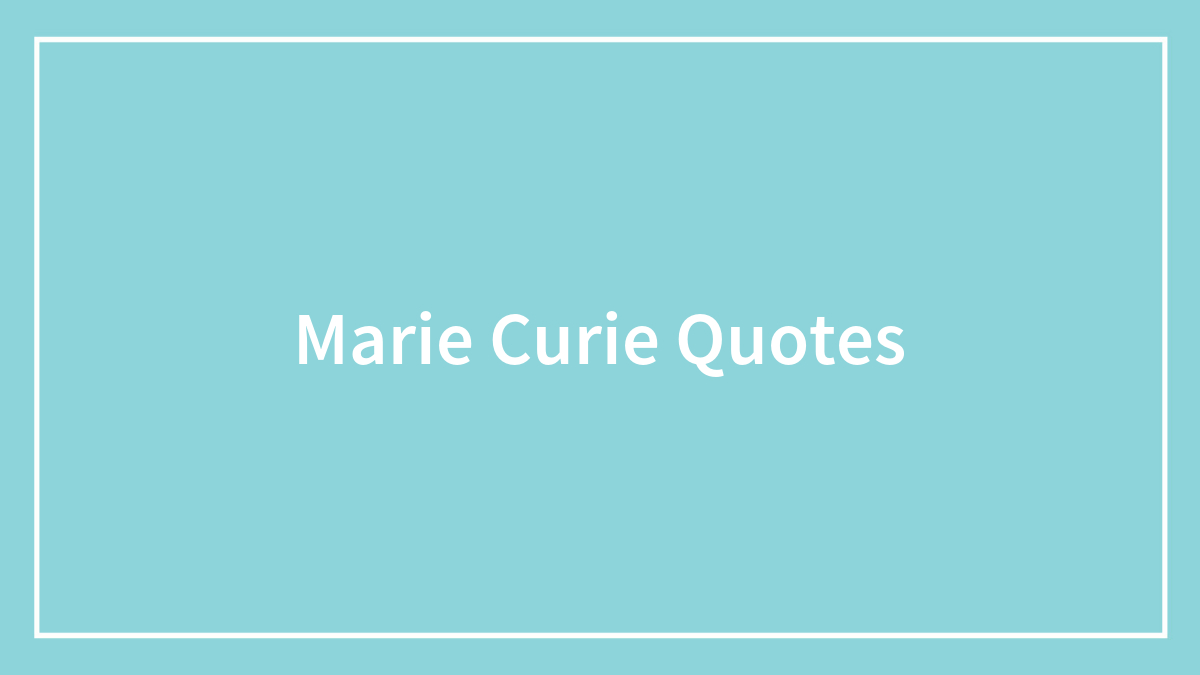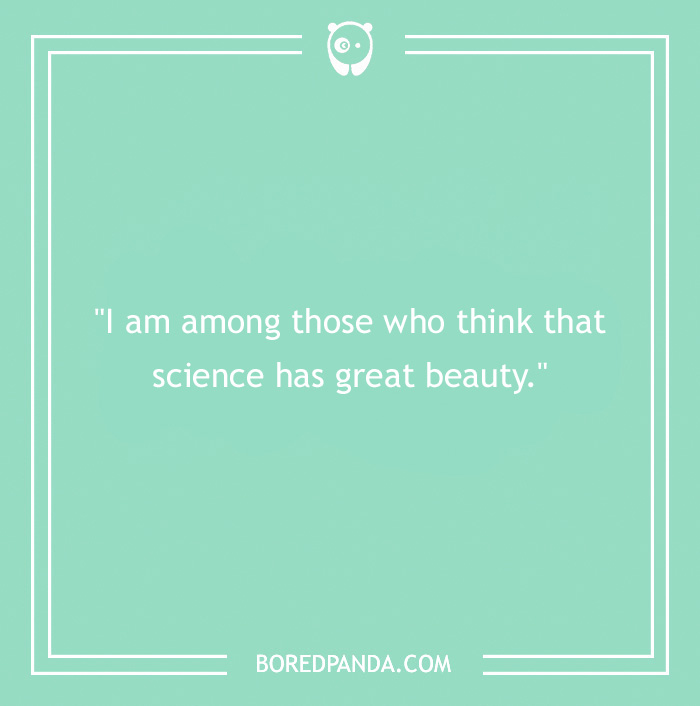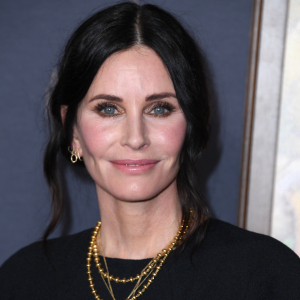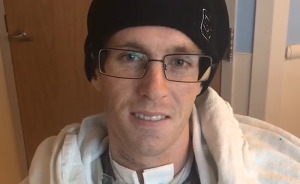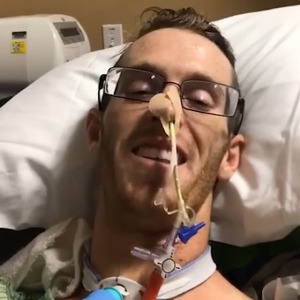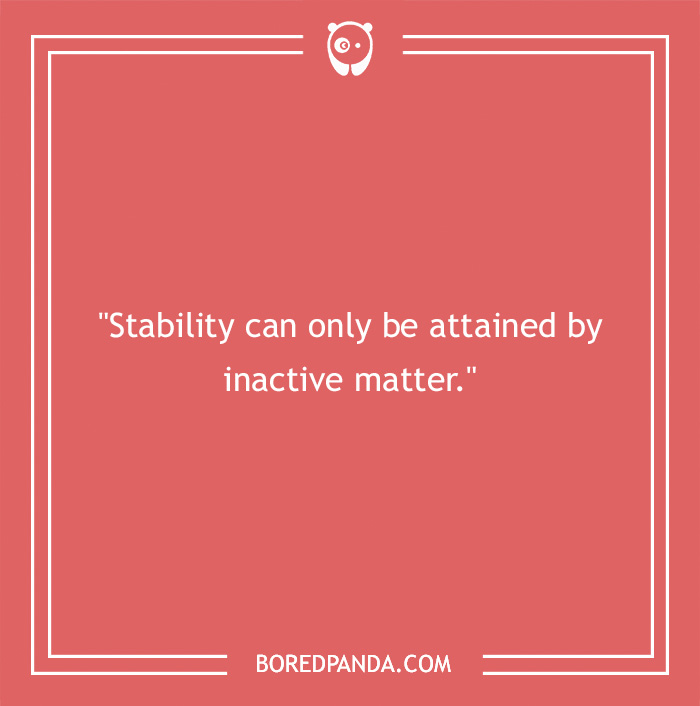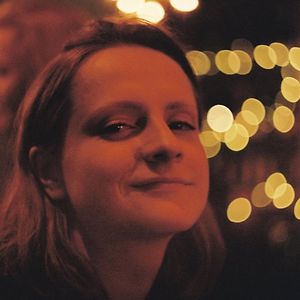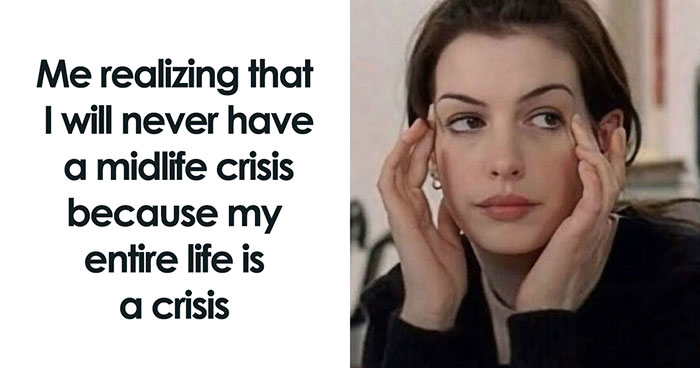Marie Salomea Skłodowska–Curie, a Polish-French physicist and chemist, was truly a part of a scientific revolution. Her pioneering research on radioactivity (a term she coined herself, of course!) earned her the title of the first woman to win the Nobel Prize, and she also did it twice! That still makes her the first and only person with double Nobels. And that's not all the firsts in Marie's life, as later on, in 1906, she became the first woman professor at the University of Paris. So, with just these few facts from Curie's biography, you can be sure that she was a woman of exceptional talents and thinking. One that can be witnessed in an article dedicated to Marie Curie's quotes about life, ideas, and the importance of science.
Remember that at the time of Marie's lifetime (1876 - 1934), the world was not too keen on what women had to say, which made her career as a scientist all the more impressive. In fact, it is known that despite his own oddities, Albert Einstein was one of the biggest fans of Marie and her work! And although this article does not provide an excerpt of the letters between the two, you can rest assured that these quotes from Marie Curie will shed light on what their conversations might have looked like. And, as far as famous quotes go, Marie's can easily be discerned from the rest by their tangible feeling of empathy and thoughts as unique as she was herself.
So, a good portion of Marie Curie's famous quotes awaits down below. You should absolutely check them out if you want to know more about her way of thinking and if you need a bit of motivation in your day. And, if it is the first time you are hearing this famous scientist's name, be sure to read more about her and her road to stellar achievements that saved millions of lives and changed our world for the better. Give your vote for her powerful quotes, and share this article with your friends, too!
This post may include affiliate links.
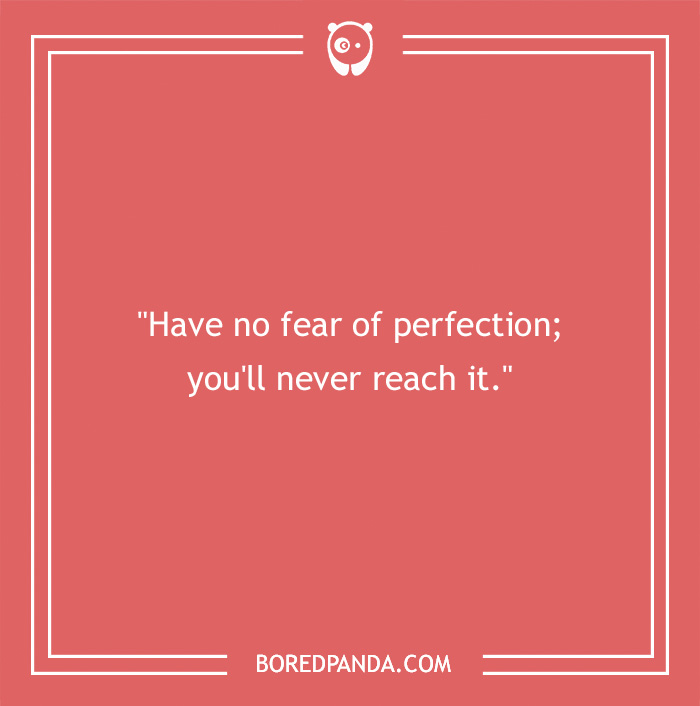 "Have no fear of perfection; you'll never reach it."
"Have no fear of perfection; you'll never reach it."
"It's always good to marry your best friend."
"The older one gets, the more one feels that the present moment must be enjoyed, comparable to a state of grace."
"There are sadistic scientists who hurry to hunt down errors instead of establishing the truth."
 "You’ll never make me believe women were made to walk on stilts."
"You’ll never make me believe women were made to walk on stilts."
"Pierre Curie came to see me and showed a simple and sincere sympathy with my student life. Soon he caught the habit of speaking to me of his dream of an existence consecrated entirely to scientific research, and he asked me to share that life."
 "My husband and I were so closely united by our affection and our common work that we passed nearly all of our time together."
"My husband and I were so closely united by our affection and our common work that we passed nearly all of our time together."
"Life is not easy for any of us. But what of that? We must have perseverance and above all confidence in ourselves. We must believe that we are gifted for something, and that this thing must be attained."
"I was only fifteen when I finished my high-school studies, always having held first rank in my class. The fatigue of growth and study compelled me to take almost a year's rest in the country. I then returned to my father in Warsaw, hoping to teach in the free schools."
"A scientist in his laboratory is not a mere technician: he is also a child confronting natural phenomena that impress him as though they were fairy tales."
"Nothing in life is to be feared, it is only to be understood. Now is the time to understand more, so that we may fear less."
"During the year 1894, Pierre Curie wrote me letters that seem to me admirable in their form. No one of them was very long, for he had the habit of concise expression, but all were written in a spirit of sincerity and with an evident anxiety to make the one he desired as a companion know him as he was."
"Sometimes I had to spend a whole day mixing a boiling mass with a heavy iron rod nearly as large as myself. I would be broken with fatigue at the day's end. Other days, on the contrary, the work would be a most minute and delicate fractional crystallization, in the effort to concentrate the radium."
 "You can only analyze the data you have. Be strategic about what to gather and how to store it."
"You can only analyze the data you have. Be strategic about what to gather and how to store it."
"I am among those who think that science has great beauty. A scientist in his laboratory is not only a technician: he is also a child placed before natural phenomena which impress him like a fairy tale."
"Humanity also needs dreamers, for whom the disinterested development of an enterprise is so captivating that it becomes impossible for them to devote their care to their own material profit."
"Just remember you will find that one special love that you know is right but for some reason just doesn't last."
"It was like a new world opened to me, the world of science, which I was at last permitted to know in all liberty."
"So perished the hope founded on the wonderful being who thus ceased to be. In the study room to which he was never to return, the water buttercups he had brought from the country were still fresh."
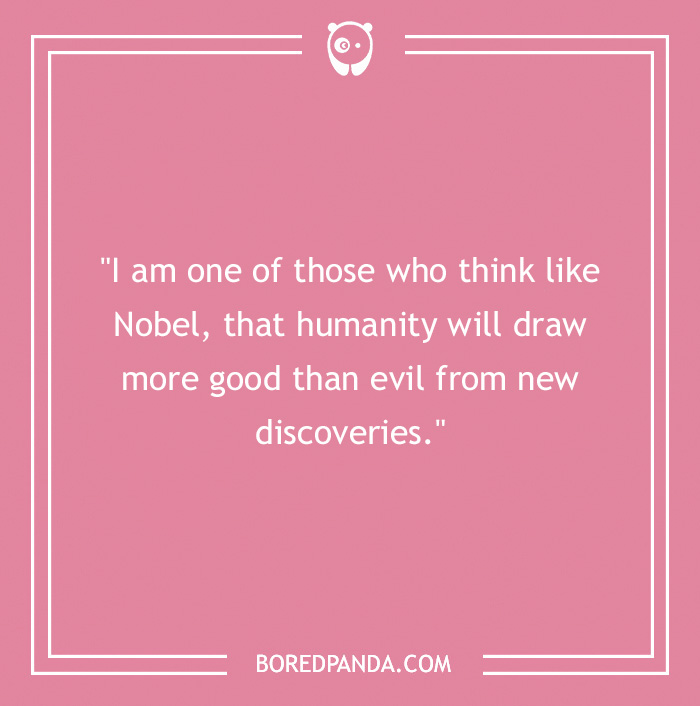 "I am one of those who think like Nobel, that humanity will draw more good than evil from new discoveries."
"I am one of those who think like Nobel, that humanity will draw more good than evil from new discoveries."
"In 1903, I finished my doctor's thesis and obtained the degree. At the end of the same year, the Nobel prize was awarded jointly to Becquerel, my husband and me for the discovery of radioactivity and new radioactive elements."
"During the course of my research, I had had occasion to examine not only simple compounds, salts and oxides, but also a great number of minerals."
"The death of my husband, coming immediately after the general knowledge of the discoveries with which his name is associated, was felt by the public, and especially by the scientific circles, to be a national misfortune."
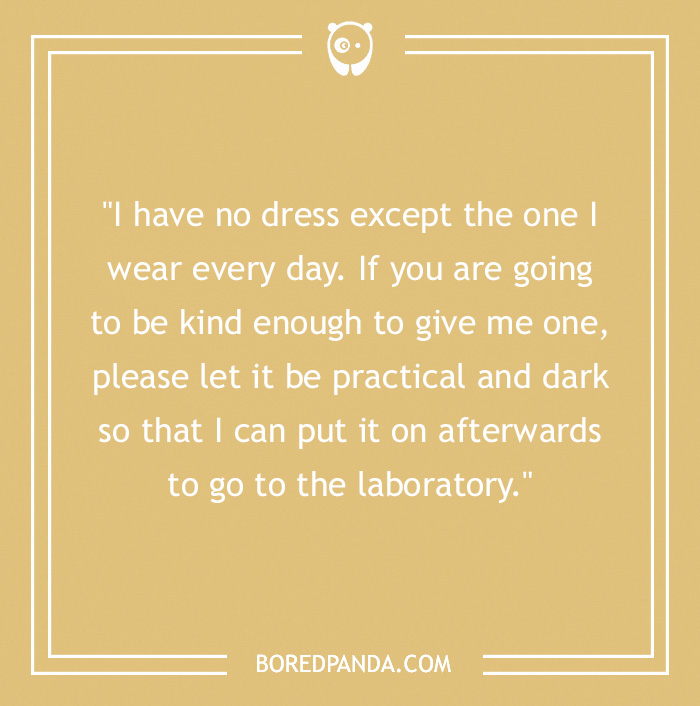 "I have no dress except the one I wear every day. If you are going to be kind enough to give me one, please let it be practical and dark so that I can put it on afterwards to go to the laboratory."
"I have no dress except the one I wear every day. If you are going to be kind enough to give me one, please let it be practical and dark so that I can put it on afterwards to go to the laboratory."
"The first experiments on the biological properties of radium were successfully made in France, with samples from our laboratory, while my husband was living."
"My experiments proved that the radiation of uranium compounds can be measured with precision under determined conditions and that this radiation is an atomic property of the element of uranium."
"If I see anything vital around me, it is precisely that spirit of adventure, which seems indestructible and is akin to curiosity."
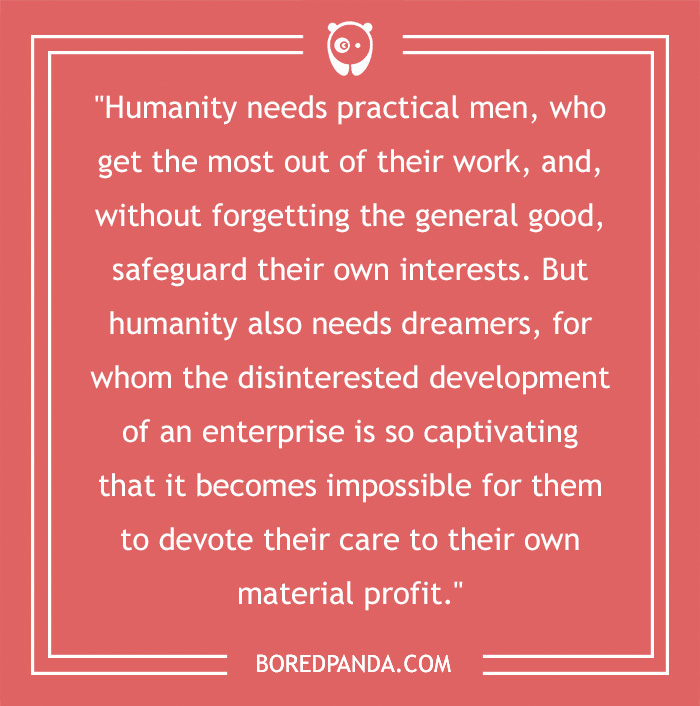 "Humanity needs practical men, who get the most out of their work, and, without forgetting the general good, safeguard their own interests. But humanity also needs dreamers, for whom the disinterested development of an enterprise is so captivating that it becomes impossible for them to devote their care to their own material profit."
"Humanity needs practical men, who get the most out of their work, and, without forgetting the general good, safeguard their own interests. But humanity also needs dreamers, for whom the disinterested development of an enterprise is so captivating that it becomes impossible for them to devote their care to their own material profit."
"I have the best husband one could dream of; I could never have imagined finding one like him. He is a true gift of heaven, and the more we live together the more we love each other."
"It is my earnest desire that some of you should carry on this scientific work and keep for your ambition the determination to make a permanent contribution to science."
"Sometimes my courage fails me, and I think I ought to stop working, live in the country and devote myself to gardening. But I am held by a thousand bonds, and I don't know when I shall be able to arrange things otherwise. Nor do I know whether, even by writing scientific books, I could live without the laboratory."
"When one studies strongly radioactive substances special precautions must be taken if one wishes to be able to take delicate measurements. The various objects used in a chemical laboratory and those used in a chemical laboratory, and those which serve for experiments in physics, become radioactive in a short time and act upon photographic plates through black paper. Dust, the air of the room, and one's clothes all become radioactive."
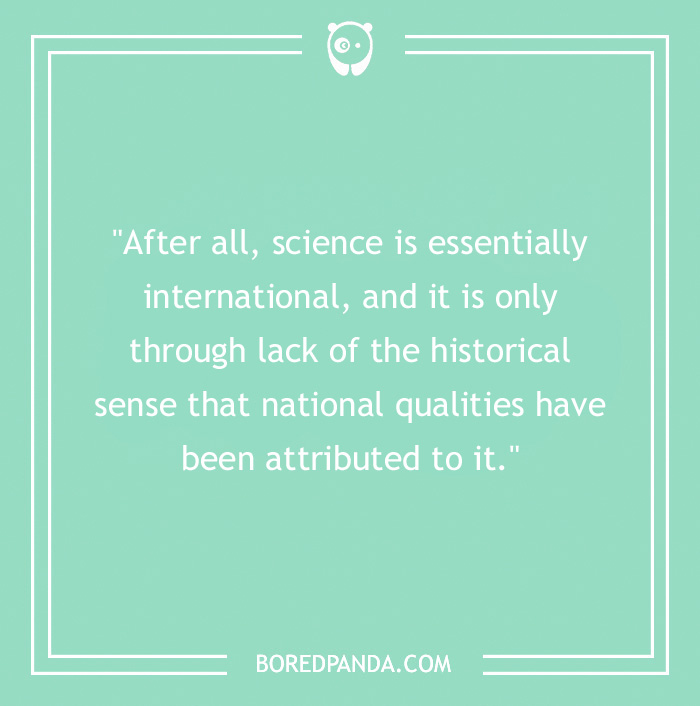 "After all, science is essentially international, and it is only through lack of the historical sense that national qualities have been attributed to it."
"After all, science is essentially international, and it is only through lack of the historical sense that national qualities have been attributed to it."
"We should not allow it to be believed that all scientific progress can be reduced to mechanisms, machines, gearings, even though such machinery also has its beauty. Neither do I believe that the spirit of adventure runs any risk of disappearing in our world."
"Unknown in Paris, I was lost in the great city, but the feeling of living there alone, taking care of myself without any aid, did not at all depress me. If sometimes I felt lonesome, my usual state of mind was one of calm and great moral satisfaction."
"You cannot hope to build a better world without improving the individuals. To that end, each of us must work for his own improvement and, at the same time, share a general responsibility for all humanity, our particular duty being to aid those to whom we think we can be most useful."
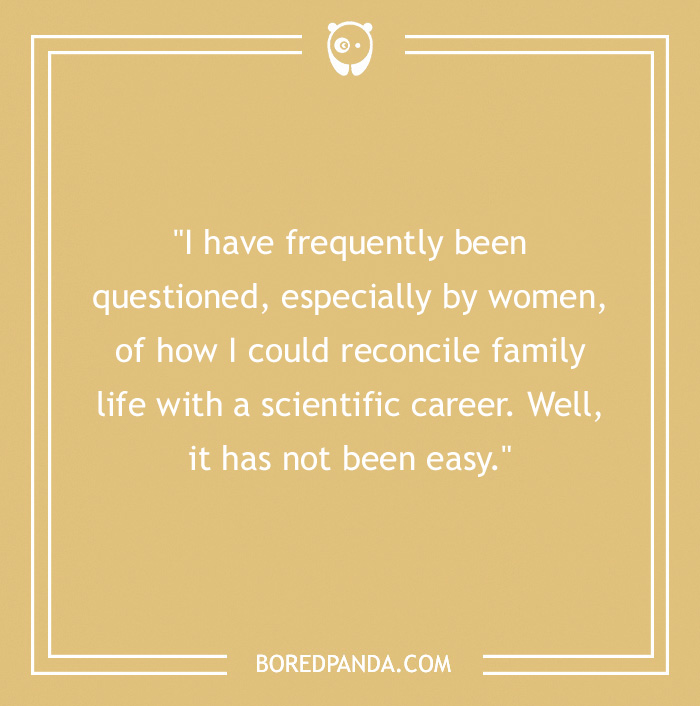 "I have frequently been questioned, especially by women, of how I could reconcile family life with a scientific career. Well, it has not been easy."
"I have frequently been questioned, especially by women, of how I could reconcile family life with a scientific career. Well, it has not been easy."
"When radium was discovered, no one knew that it would prove useful in hospitals. The work was one of pure science. And this is a proof that scientific work must not be considered from the point of view of the direct usefulness of it."
"In 1906, just as we were definitely giving up the old shed laboratory where we had been so happy, there came the dreadful catastrophe which took my husband away from me and left me alone to bring up our children and, at the same time, to continue our work of research."
"It is my earnest desire that some of you should carry on this scientific work and keep for your ambition the determination to make a permanent contribution to science."
"Pierre Curie voluntarily exposed his arm to the action of radium for several hours. This resulted in damage resembling a burn that developed progressively and required several months to heal. Henri Becquerel had by accident a similar burn as a result of carrying in his vest pocket a glass tube containing radium salt. He came to tell us of this evil effect of radium, exclaiming in a manner at once delighted and annoyed: "I love it, but I owe it a grudge.""
"I believe international work is a heavy task, but that it is nevertheless indispensable to go through an apprenticeship in it, at the cost of many efforts and also of a real spirit of sacrifice: however imperfect it may be, the work of Geneva has a grandeur that deserves our support."
"We believe the substance we have extracted from pitchblende contains a metal not yet observed, related to bismuth by its analytical properties. If the existence of this new metal is confirmed we propose to call it polonium, from the name of the original country of one of us."
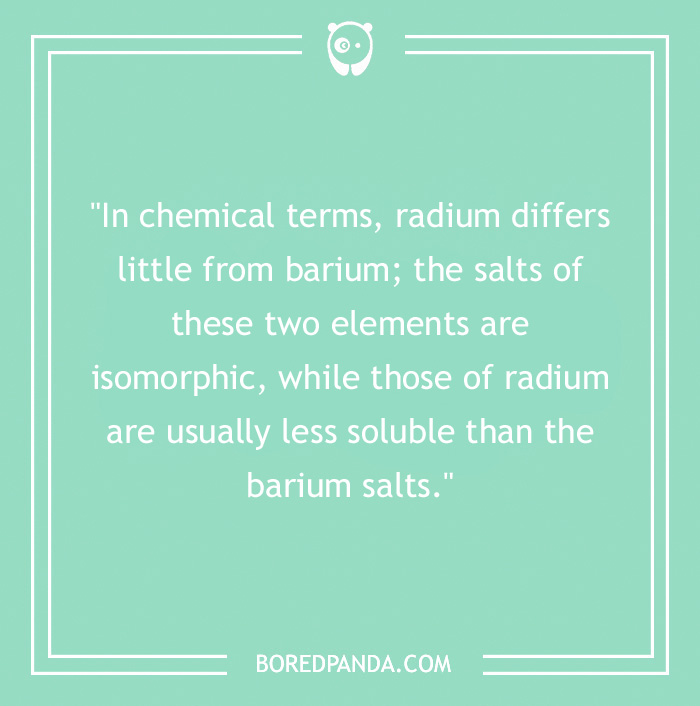 "In chemical terms, radium differs little from barium; the salts of these two elements are isomorphic, while those of radium are usually less soluble than the barium salts."
"In chemical terms, radium differs little from barium; the salts of these two elements are isomorphic, while those of radium are usually less soluble than the barium salts."
"All my mind was centered on my studies, which, especially at the beginning, were difficult. In fact, I was insufficiently prepared to follow the physical science course at the Sorbonne, for, despite all my efforts, I had not succeeded in acquiring in Poland a preparation as complete as that of the French students following the same course."
"If I see anything vital around me, it is precisely that spirit of adventure, which seems indestructible and is akin to curiosity."
"I met Pierre Curie for the first time in the spring of the year 1894... A Polish physicist whom I knew, and who was a great admirer of Pierre Curie, one day invited us together to spend the evening with himself and his wife."
"I tried out various experiments described in treatises on physics and chemistry, and the results were sometimes unexpected. At times, I would be encouraged by a little unhoped-for success; at others, I would be in the deepest despair because of accidents and failures resulting from my inexperience."
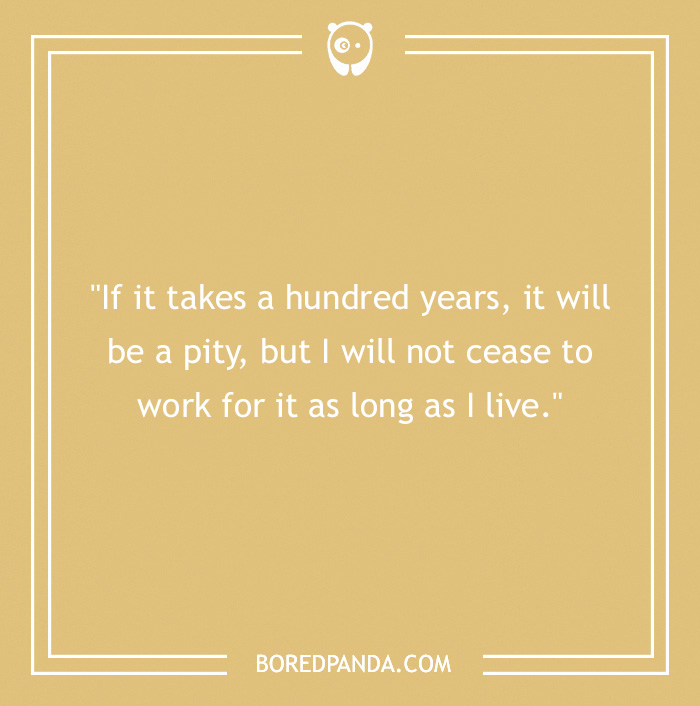 "If it takes a hundred years, it will be a pity, but I will not cease to work for it as long as I live."
"If it takes a hundred years, it will be a pity, but I will not cease to work for it as long as I live."
"I shall devote only a few lines to the expression of my belief in the importance of science — it is by this daily striving after knowledge that man has raised himself to the unique position he occupies on earth, and that his power and well-being have continually increased."
"Certain bodies... become luminous when heated. Their luminosity disappears after some time, but the capacity of becoming luminous afresh through heat is restored to them by the action of a spark, and also by the action of radium."
"The various reasons which we have enumerated lead us to believe that the new radio-active substance contains a new element which we propose to give the name of radium."
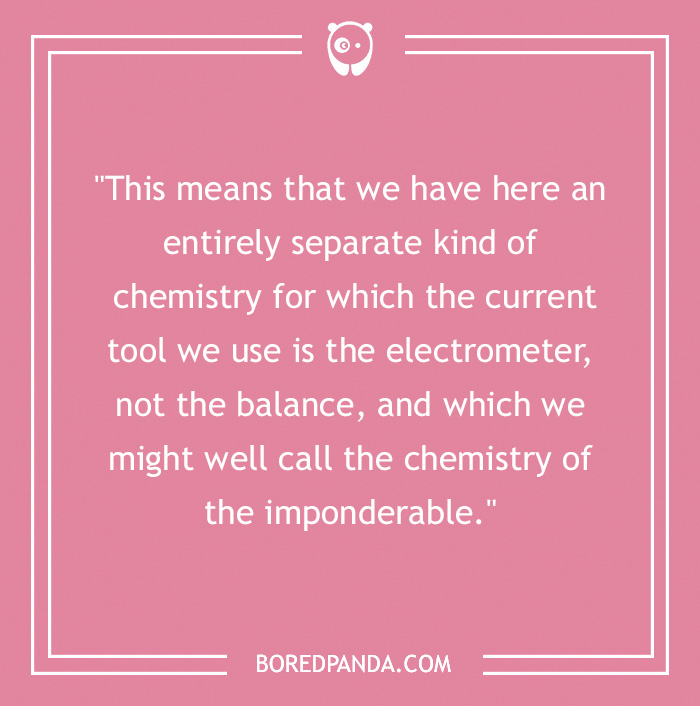 "This means that we have here an entirely separate kind of chemistry for which the current tool we use is the electrometer, not the balance, and which we might well call the chemistry of the imponderable."
"This means that we have here an entirely separate kind of chemistry for which the current tool we use is the electrometer, not the balance, and which we might well call the chemistry of the imponderable."
"The sensitive plate, the gas, which is ionized, the fluorescent screen, are in reality receivers, into another kind of energy, chemical energy, ionic energy... luminous energy."

 Dark Mode
Dark Mode 

 No fees, cancel anytime
No fees, cancel anytime 


